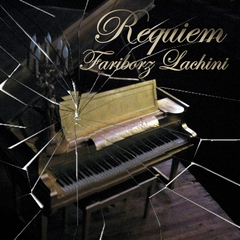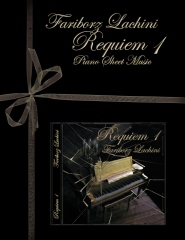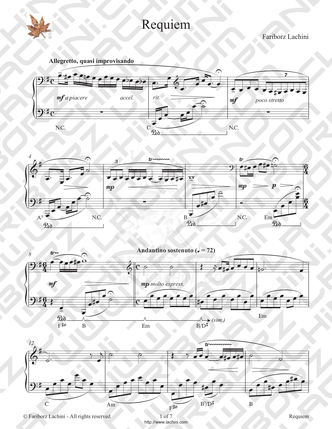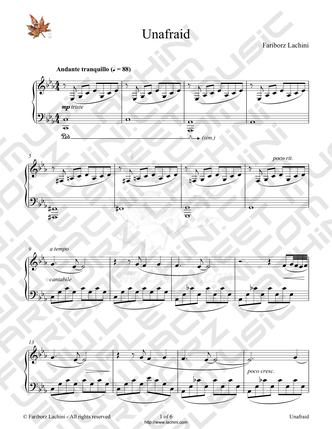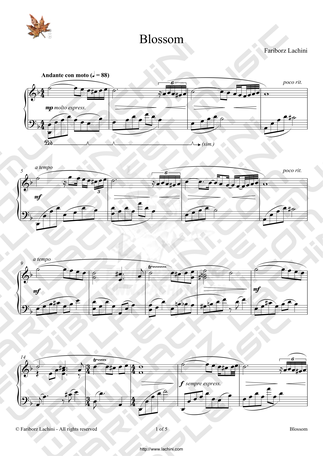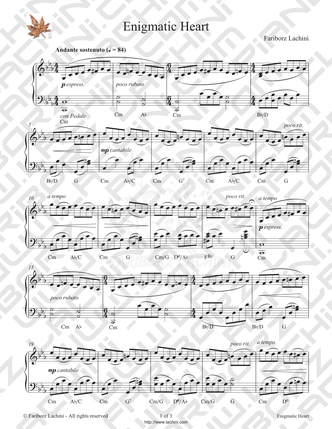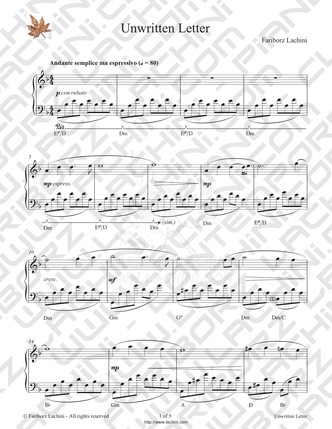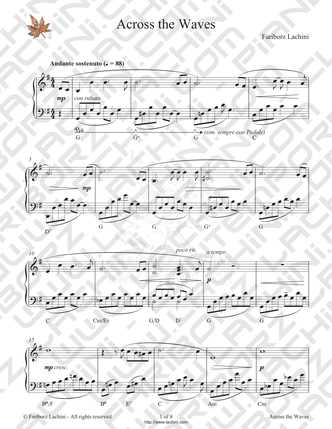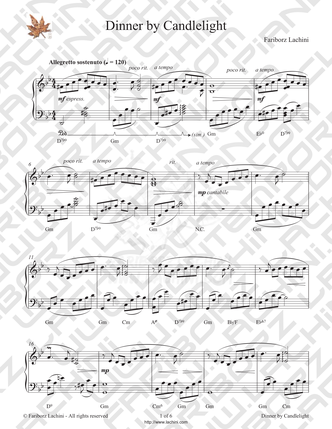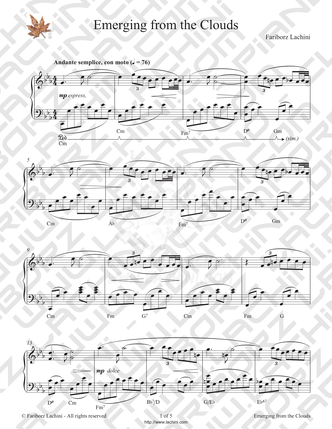Requiem 1
Composé et interprété par Fariborz Lachini
Pièces classiques contemporaines pour Piano Solo
Composée par : Fariborz Lachini
La musique instrumentale
Genre: Piano Solo , La musique easy listening , Classique contemporaine
Musique Album longueur: 54:32
Livre de partitions: 48 Page
Catalog: RQ01
UPC:
ISMN: 979-0-706060-04-0
ISBN-13: 978-1441436245
ISBN-10: 1441436243
Kathy Parson's Review
“Requiem” is a stunning new solo piano collection from Iranian-Canadian pianist/composer Fariborz Lachini. Lachini has been experiencing a wonderfully creative period this past year, composing music in a classical style that imitates no particular composers or even specific classical eras. The music is more formal in structure, but Lachini’s emotional content is as powerful as ever. These classically-styled pieces are Lachini’s strongest and most entrancing works to date, and some are among the most beautiful pieces of music I’ve ever heard. Lachini’s playing is never flashy or overly-embellished, allowing the emotions and colors of the music to tell their stories, from the composer’s heart to the listener’s. With the world in such a troubled state, Lachini makes it clear that people of different cultures share the same emotions and feel the same pain and joy, demonstrating what a unifying force music can be. Lachini is able to pour his heart and soul into his piano music so completely that his themes become universal despite any language and cultural differences. His music will touch the hearts of anyone willing to listen.
One would be hard-pressed to find a more passionate or eloquent song of mourning in any genre of music than Lachini’s “Requiem.” The feeling of utter loss and emptiness flows throughout this piece, becoming deeply personal to anyone who hears it. Most of us have had these feelings at some time in our lives (hopefully not too often!), but only a few can express them with the depth and poignant beauty that Lachini has created at the piano. The intimacy and raw emotion of the piece speak a profound truth, and it is easy to visualize Lachini pouring his soul into the piano late at night, seeking solace in the soothing power of music. “Blossom” is lighter in mood and spirit, quietly celebrating the wonders of spring and the miracle that is a new flower. As in all of the marvels of nature, there is a tinge of sadness, and that emotion is communicated in this piece as well. The quiet melody and simple accompaniment rely on the passion of the playing to bring forth the colors and expression that tell the story. As the piece develops, it becomes embellished with trills that suggest the fluttering of a butterfly’s wings or perhaps a hummingbird’s flight around the blossom, or even a gentle breeze that causes the petals to flutter. Regardless, the musical scenario is one of perfection and wonder, and the piece is a delight for the ears. “Unafraid” is my favorite of Lachini’s works so far. Very contemplative and deeply emotional, “Unafraid” begins with just a hint of Beethoven’s “Moonlight Sonata,” but moves into the present after the first few bars, played with Lachini’s distinctive emotional power and passion. The piece is tinged with sadness, but it also conveys hope and perhaps humility, looking toward the future as well as reviewing the past with honest self-examination. “Enigmatic Heart “ is darkly beautiful and compellingly honest, speaking of tragic loss and grief. Many composers manipulate the listener with over-the-top theatrics, but Lachini composes from an inner place that expresses only the truth. The piece is not without hope, but the mood is definitely somber and pensive. Some of the words that came to mind as I was listening to “Emerging From the Clouds“ included “graceful,” “elegant,” and “sad.” The simplicity of the notes in this piece make it very easy to understand and relate to, but the emotional impact comes from the powerful sensitivity of the artist playing the music.
Kathy Parsons
MainlyPiano.com
9/21/2008
